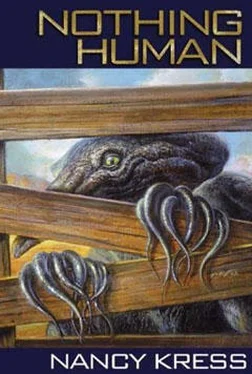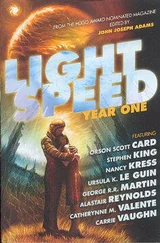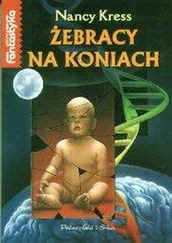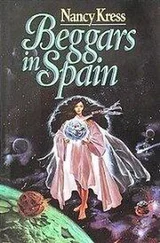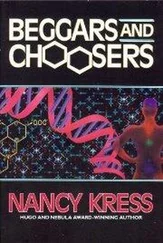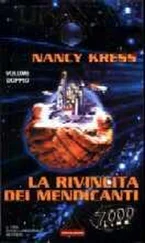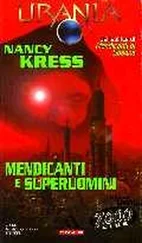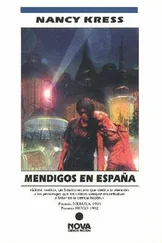She put her arm around Lillie against the wind. Bent almost double, they reached the train station and gratefully ducked inside. Open at both ends for the train to pull through, the building was hot but at least sheltered.
“Does the train run on diesel?” Lillie asked. “I thought all that was illegal now because of emissions.”
“Yes, but an exception was made for trains, in order to get food to cities. Also, there’s some form of superconductivity involved, I don’t understand what but it was one of the last things built before the war. Partly built. We’re lucky to have it.”
Or maybe not. Theresa watched as people—too many people, too badly dressed, carrying too many bundles —got off the train. Refugees. Had to be. Well, if they were willing to work, there was work digging more irrigation systems and wells, bringing more land under cultivation, channeling the newfound water. However, not all refugees could or would do manual labor. Those were the dangerous ones.
So far, the farm had been lucky. This southeast corner of New Mexico was still very remote and the world population as a whole was much less than it had once been. Wenton, despite its growing prosperity, had received few visitors. Neither had the farm, miles out on the once-desert.
But nothing stayed hidden forever.
Lillie fell asleep on the train. At Amarillo, Theresa woke her and they set out on foot through the city. It was quite a walk but bicycle cabs were exorbitant and anyway Lillie, except for morning sickness, seemed to be in superb physical shape. What had the pribir done to her?
Better not to know.
At the nursing home, Lillie pressed her lips tight together. Theresa’s heart went out to her. Such an adult gesture for a child.
Keith Anderson had dealt shrewdly with his money. Unlike most very old people, who were cared for by often grudging families or not at all, he had been able to buy life-long care in this decent, if shabby, for-profit home. Theresa had been here once before. She led Lillie to the tiny third-floor room where Keith lay in bed. At the threshold she paused, wanting to say something to prepare Lillie… stupid. Nothing would prepare her.
“Lillie!” The thin voice cracked and the easy tears of the old slid down Keith’s wrinkled cheeks. Lillie stopped dead, collected herself, moved forward. Theresa thought, She was always brave.
“Hello, Uncle Keith. I’m back.”
“Lillie…”
She sat on the edge of his bed. Theresa saw him wince slightly, his bones disturbed. Lillie, unused to the old, didn’t notice. She took his hand. “Are you all right, Uncle Keith? Is this a good place for you to live?”
“Yes. Oh, Lillie, it’s so good to see you. I thought…”
“You thought I was dead. But I’ve just been aboard the pribir ship for seven and a half months. I mean, forty years. Do you know about time dilation?”
“Yes. Oh, Lillie… you look so much like your mother.”
Once, at Andrews Air Force Base, Theresa had seen a picture of Lillie’s dead mother. Lillie looked nothing like her.
“Once,” Keith quavered, “when we were young… Barbara was only four or five…”
Theresa slipped out. Keith wanted to live in the past. A past where he was young and fresh, maybe a later past where Lillie was a little girl. Theresa went down the steps to the living room. Several old people in deep chairs sat expressionlessly watching something on the Net. A stale smell hung in the air. Outside, the wind howled around the edges of Amarillo’s shabby buildings.
“Is there a terminal I can use?” Theresa asked a woman who might have been a nurse, or a cleaning lady, or a murderer. Government regulatory agencies had all but disappeared. Ordinarily Theresa never thought about this; it was a given. But now she was seeing things through Lillie’s eyes.
The terminal was even older than the one at the farm, and slower. Theresa had few contacts on the local Net site, and none in the UnderNet, that shadowy information reached only through secret data atolls that changed constantly. But Scott had told her what to do, although he wouldn’t do it from the farm computer. “Too dangerous,” he’d said, without explaining.
“There’s no one to enforce laws,” Theresa had told Madison, but that wasn’t strictly true. There were organizations as shadowy as the UnderNet, vigilantes and religious groups and supremacist groups and anti-science groups and God-knew-what-all. The religious groups were the least vicious but the most pervasive. A vindictive God was apparently a great comfort to some when the planet itself seemed to turn vindictive. Theresa didn’t understand the reasoning, but it was widespread enough to earn respectful caution.
Nonetheless, she found an abortionist in Amarillo, messaged with her, and set up an appointment for Madison and Jessie. More credit spent, plus three more train tickets. Although only Theresa’s would be round-trip. Still, facing Senni would be no fun.
Theresa walked back to the living room. None of the old people had changed position or expression. She took a chair and pulled out the sewing she’d brought. They couldn’t start back until sunset, when the wind would die down. Trips away from the farm were usually measured in day-long units.
Maybe Lillie would want to stay here with Keith. Work for room and board, one less mouth to feed at the farm… until the triplets were born. If Keith lasted that long.
She started sewing a maternity dress for Emily.
“I asked to stay there,” Lillie said on the way home. The sky had clouded over, and Theresa was pushing the horse to make the farm before all light faded. She had a halogen torch but hoped to save it. They had spent a few hours in Wenton, checking on the kids working there to earn tickets home: Bonnie, Sophie, Julie, Jason, Derek, Mike. Julie had cried when Lillie and Theresa left.
Theresa said, “Why didn’t you stay in Amarillo, then?”
“Uncle Keith said no.”
“Did he say why?”
“He wants me with you and Scott. He said he can’t help me if anything goes even a little bit wrong, and you can.”
“That’s sensible.”
“I won’t see him again, I don’t think,” Lillie said. “He’s close to dying.”
Theresa didn’t deny it. “You can keep in touch on the Net.”
“It isn’t the same.”
Of course not. Nothing was the same. The horse plodded through the pearly, inadequate light.
“Tess,” Lillie said after a long while, “I don’t want to be a mother.”
Not Lillie, too. “Are you saying you want an abortion?”
“No. I talked it over with Uncle Keith and… no. He said I don’t understand now how precious the continuing of life is, but I will someday.”
Theresa thought of Jody, Carlo, Spring, and her dead daughter. Of Senni and Dolly and the child Senni carried. Yes.
“Maybe he’s right,” Lillie said, with her odd mix of measured judiciousness and child’s complaint, “but I don’t want to be a mother anyway. I’m not interested in babies. And I don’t think… I don’t think I can love them like Uncle Keith loved me.”
Theresa suddenly saw that this was true. Lillie was too detached, or too young, or too something. She was many good qualities, but not tender.
“We’ll all help you,” Theresa said, inwardly groaning. More work.
“Thank you. And I’ll do the best I can. For Uncle Keith.”
The light was gone. Theresa switched on the torch. A sudden breeze brought a faint, pungent odor, and she gave a cry of pleasure. Cattle. Her sons were home!
Her heart lifted, and the night seemed much brighter.
The abortionist operated in a clean, windowless basement divided by curtains into “rooms.” Theresa brought Jessica, defiant, and Madison, scared, on the Wednesday train. “If you would help, we wouldn’t have to do this,” she told Scott accusingly before they left.
Читать дальше
